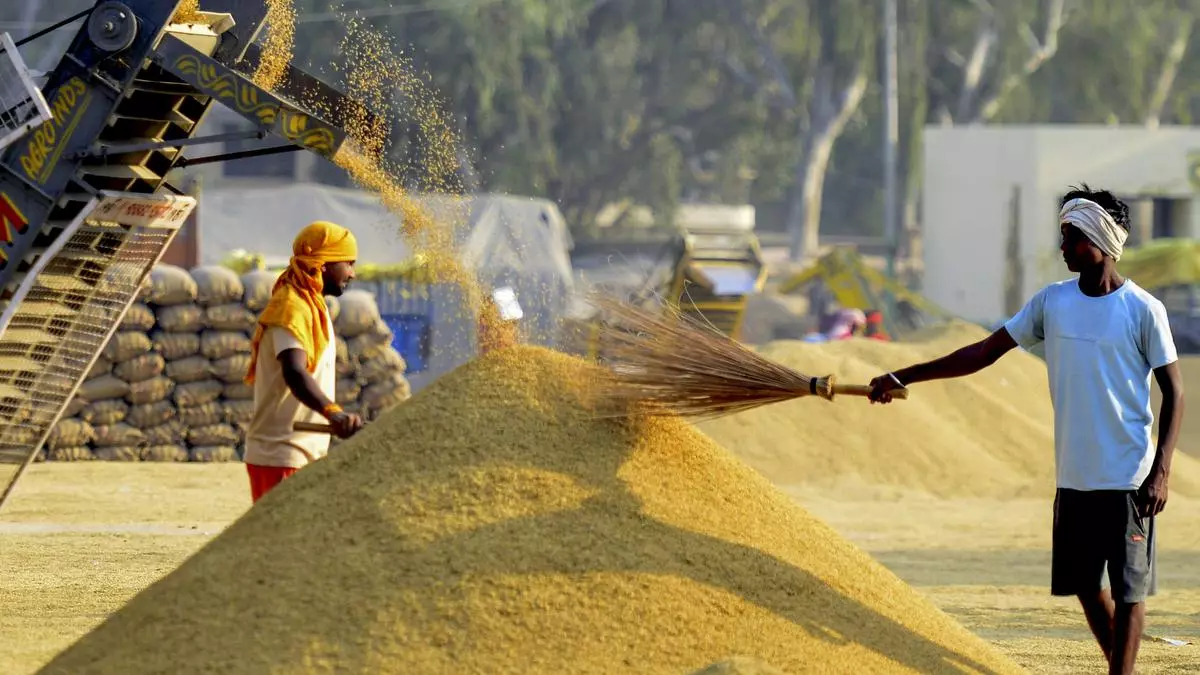Govt should consider alternatives to demand for legal MSP, say experts
The minimum support price (MSP) cannot be made legally binding and, as an alternative, the government can consider fixing a minimum auction rate at agricultural market yards (mandis) to cover cost of production, experts have said. This will ensure there is no loss to farmers and profit is determined by demand and supply.
The suggestions come amid an indefinite fast undertaken by farmer leader Jagjit Singh Dallewal entering the 43rd day on Tuesday. Dallewal is leading a protest march to Delhi demanding to make the minimum support price (MSP) legal. The protest march was stopped from moving towards Delhi. Since February last year, it has been stuck at two points on the Punjab-Haryana border.
Fix MRP
The Doubling Farmers’ Income (DFI) committee, in its report, has suggested that the price quotes by those participating in the auction of an agricultural produce lot at the APMC (agricultural produce marketing committee) yards should not be below the cost of production. This should be treated as the minimum reserve price (MRP). Such a provision needs to be introduced into the State APMC Acts by an amendment, it said.
Concurring with the recommendation, Ashok K Dalwai, the former Chairman of the DFI Committee, said this is necessary because one sees a tendency on the part of the commission agents citing a low price as reserve price on behalf of the farmers, even without their consent.
“This should not, however, take away the rights of the farmers to quote any price that they expect on their lots, subject to the expected price being at the minimum equal to or higher than the MRP,” he said.
On the other hand, PK Joshi, Vice President of the National Academy of Agricultural Sciences (NAAS), said legal MSP is not feasible in an open market economy as it primarily means the entire agriculture is controlled by the government.
Higher economic cost
“It is not possible for the government to procure entire produce, stock it and sell those under the purview of MSP. Such a market mechanism will have a high economic cost. Rice and wheat are examples where FCI has been procuring, stocking and selling these two commodities. The economic cost of procuring, stocking and selling by FCI is much higher than what is done by the private trade,” said Joshi, who was also one of the members of the Supreme Court-appointed expert panel on three controversial farm laws (since repealed) in 2020.
He said that legalising the MSP means the complete disappearance of the private trader and it will require the government to create infrastructure for the procurement, stocking and selling of those commodities. As it also requires creating new institutions, such investments have high opportunity costs, which otherwise can be allocated for agricultural development, such as land and water development, supportt high-value agriculture and processing, and frontier technologies, Joshi said.
He said to ensure remunerative prices, the government should implement alternatives like price deficiency mechanisms, price insurance, warehouse receipt system, agriculture commodity derivatives, and effective trade policy for surplus commodities. He favoured promotion of contract farming, strengthening of farmer producer organisations (FPOs) and cooperatives for production, value-addition, processing and branding.
Hardship factor
The DFI committee said the need to consider notifying a reserve price, distinct from the MSP used by government agencies, to serve as a predetermined floor price for the administered auctions in the primary and secondary markets. “This will allow the farmers a starting point in their market negotiations. This reserve price could be set so as to cover the primary cost of cultivation, with market demand dynamics contributing on top of the reserve price,” it said.
The panel said while government agencies are guided by MSP for undertaking procurement, there is no minimum reserve price for the private trade that is undertaken at markets. “In effect, there is no benchmark price to set the floor price at the regulated auctions or for other transactions,” it had said.
It also recommended that this reserve price be accordingly differentiated by a hardship factor (H) so that it would be regionally differentiated on the basis of the average yield per hectare of a crop in a district, the status of irrigation (rainfed or irrigated) of the area, and the farm-gate price of inputs.
“In effect, the reserve price would be similar to A2 + FL, plus H (regionally differentiated hardship factor),” it said and added that MSP would continue to be used for direct market intervention (executed through MSP linked procurement by the government and assigned agencies). The reserve price can be as evaluated by the CACP, it said, which and the States can apply the factor ‘H’ at district level.
